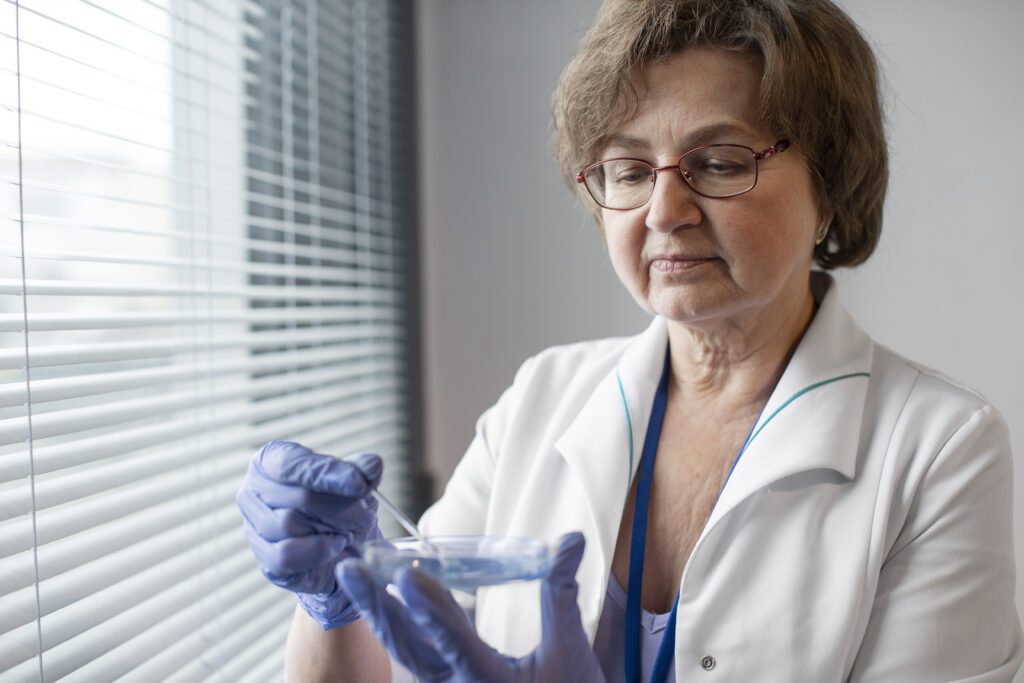Can Aging Be Delayed Through Genetic Interventions? A Fresh Perspective

The concept of delaying aging has evolved from science fiction to an area of real scientific inquiry. Researchers today are diving into the realm of genetic interventions, which aims to manipulate the body’s biological processes in order to slow or possibly reverse the aging process.
Understanding the Genetic Foundations of Aging
Aging is a complex process driven by a variety of biological mechanisms, such as cellular senescence, telomere shortening, and DNA damage accumulation. Cellular senescence occurs when cells lose their ability to divide, leading to the gradual deterioration of tissue function. As we age, our body’s ability to repair DNA damage decreases, leading to the accumulation of harmful mutations. Telomeres, the protective caps on the ends of chromosomes, also shorten over time, limiting the lifespan of cells.
Genetic Interventions: Targeting Longevity
Scientists are exploring various genetic pathways that influence how long and how well we age. Some of the key genetic interventions under study include:
- Sirtuins Activation: Sirtuins are proteins that play a crucial role in cellular health and longevity. Genetic interventions that activate sirtuin pathways could help cells repair DNA damage, boost metabolism, and reduce inflammation.
- mTOR Inhibition: The mTOR (mechanistic target of rapamycin) pathway is involved in cell growth and aging. Inhibiting this pathway has been shown in animal studies to extend lifespan and delay the onset of age-related diseases by promoting autophagy, the body’s natural way of clearing out damaged cells.
- Telomerase Activation: Telomerase is an enzyme that can replenish telomeres, the caps on the ends of chromosomes. Increasing telomerase activity may slow cellular aging by extending the lifespan of cells.
- Gene Editing (CRISPR): The revolutionary CRISPR technology enables precise editing of the genome. In the future, CRISPR could be used to correct genetic mutations that lead to accelerated aging or predispose individuals to age-related diseases such as Alzheimer’s or cancer.
Success in Animal Models: A Glimpse Into the Future
Animal studies have already demonstrated the potential of genetic interventions in extending lifespan and improving health during aging. For example, mice treated with rapamycin, a drug that inhibits mTOR, lived longer and showed improved cognitive function. Similarly, genetically modified worms and flies have experienced significant lifespan extensions through sirtuin activation.
Human Applications: The Road Ahead
While animal models show promising results, translating these findings into human therapies remains a significant challenge. Aging is a multifactorial process influenced by genetics, environment, and lifestyle. Genetic interventions are still in the experimental phase for humans, but they offer hope for future anti-aging therapies. Companies and research institutions are already investing heavily in this area, aiming to make genetic interventions part of mainstream healthcare in the future.
Ethical and Social Considerations
As with any revolutionary medical technology, genetic interventions raise ethical concerns. Questions about access, affordability, and the long-term effects of manipulating human genetics need careful consideration. Additionally, altering genes to delay aging could impact the natural life cycle and societal structures in unpredictable ways.
Conclusion
Although aging cannot be entirely avoided, genetic interventions present a fascinating frontier in extending both lifespan and healthspan. As research advances, we may eventually see a future where aging is not just managed but actively delayed, allowing individuals to live longer, healthier lives.